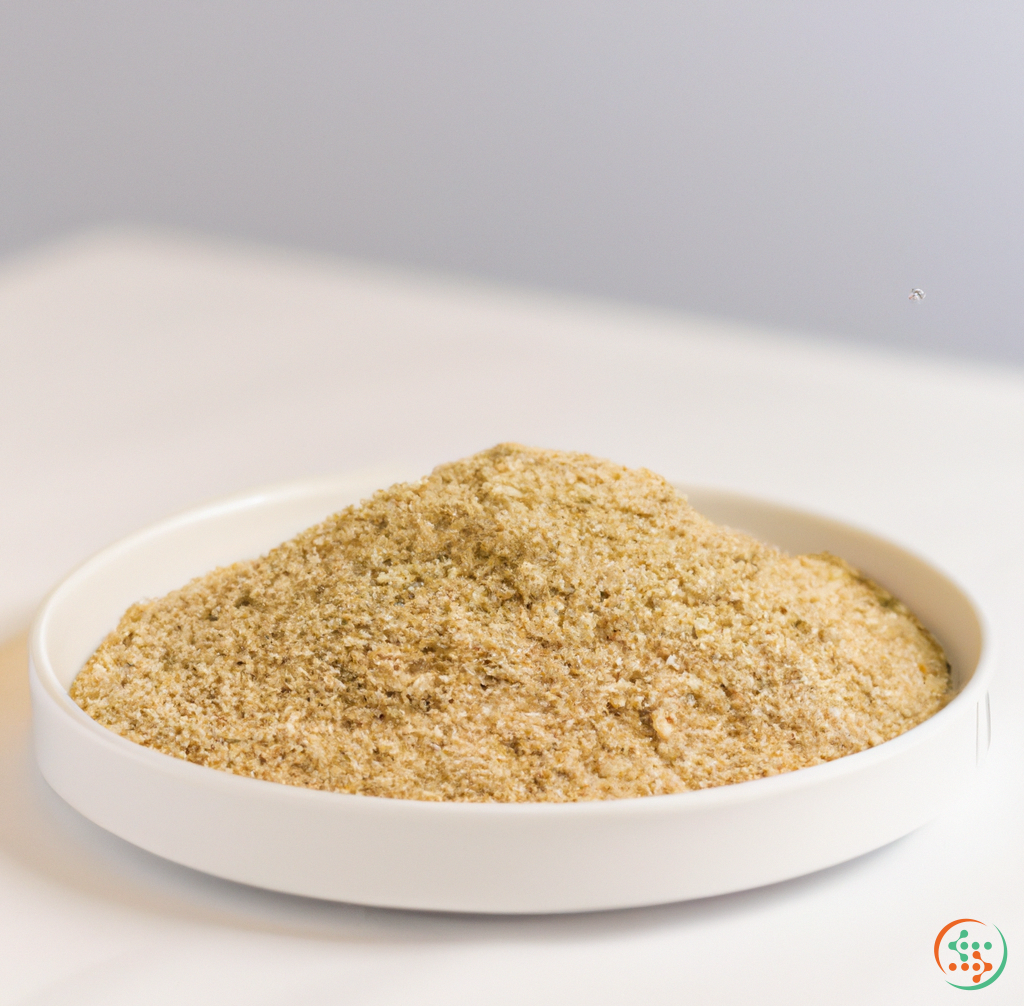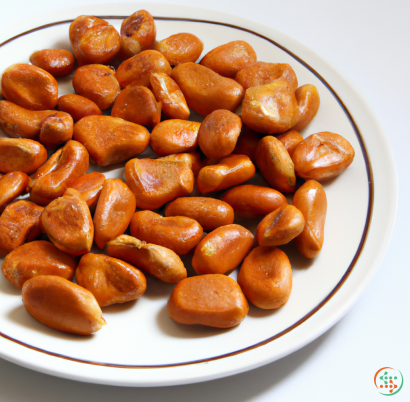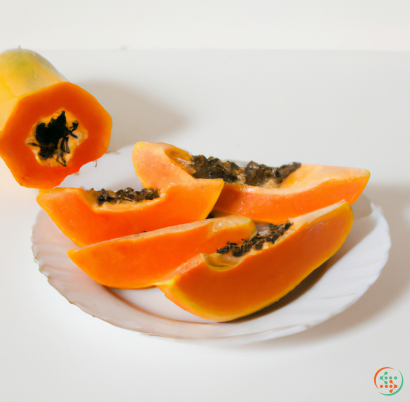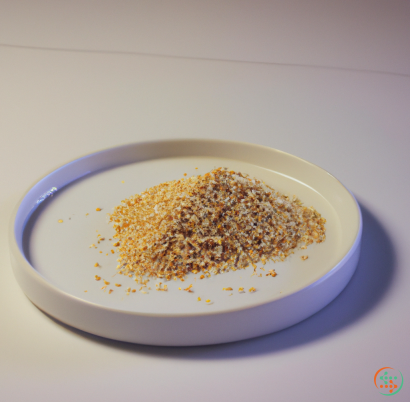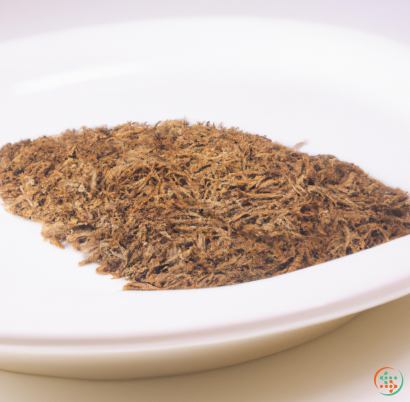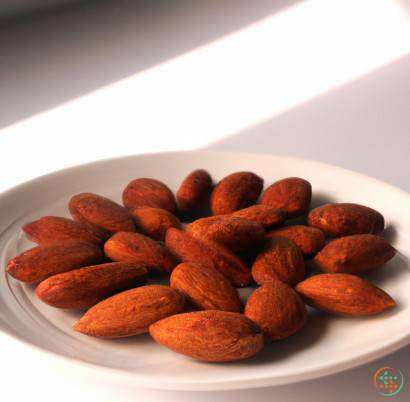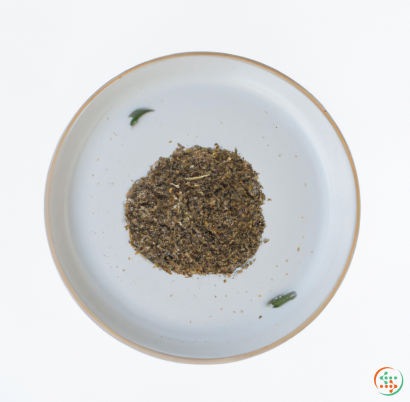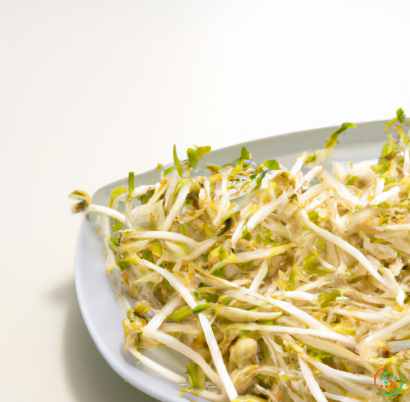Sunflower Seed Flour
Sunflowers are one of the world's most recognizable flowers. But did you know that their seeds can be used to make a versatile, nutritious flour? Sunflower seed flours are becoming more popular among home bakers and health-conscious cooks, and it’s easy to see why. Not only is sunflower seed flour packed with essential vitamins and minerals, it’s also a gluten-free alternative to wheat and other grain flours, making it a perfect option for those looking to avoid allergies or wheat sensitivities. Let's take a closer look at what this interesting flour is, and how you can use it in your cooking.
What Is Sunflower Seed Flour?
Put simply, sunflower seed flour is a fine flour milled from sunflower seeds. Unlike traditional cereal-based flours, most sunflower seed flours are made using raw or lightly roasted seeds which are then ground into a powder. This process results in a nutritious flour packed with fiber, protein, healthy fats, vitamins, and other essential nutrients.
Health Benefits of Sunflower Seed Flour
Sunflower seed flour is an excellent source of healthy fats and plant-based proteins. A three tablespoon serving of the flour has about 5 grams of fat, almost 3 grams of protein, and nine essential amino acids. Additionally, this flour is high in both magnesium and phosphorus, which are essential for proper muscle, nerve, and heart function.
Sunflower seed flour is also a good source of dietary fiber, which can help to regulate digestion, stave off hunger, and reduce cholesterol. Additionally, sunflower seed flour is full of dietary antioxidants which can help protect cells from damage and prevent signs of premature aging.
Baking with Sunflower Seed Flour
One of the advantages of using this flour to make baked goods is that you don’t have to worry about it going rancid the way many grain-based flours might. That’s because it doesn’t contain gluten; therefore, it won’t lose its leavening power over time.
Because of its low-gluten content and rich flavor, you’ll often find sunflower seed flour as an ingredient in delicious gluten-free baked goods, including breads, muffins, cookies, and pancakes. While you can substitute sunflower seed flour in any recipe, in general it works best when used in low-yeast recipes and in combination with other flours. It may also be necessary to add a bit of extra liquid to the batter since sunflower seed flour absorbs more liquid than other types of flour.
Sunflower Seed Flour Recipes
Ready to give sunflower seed flour a try? Here are a few recipes to get you started:
• Chocolate Sunflower Cake: This flavorful dessert is made with a mixture of sunflower seed flour, coconut sugar, almond milk, and cocoa powder.
• Sunflower Seed Pancakes: Combining sunflower seed flour and oats makes for light fluffy pancakes. Top your pancakes with a drizzle of honey and a sprinkle of cinnamon.
• Sunflower Seed Crackers: Use sunflower seed flour along with olive oil, salt, and various spices to make these crunchy, flavorful crackers.
Sunflower seed flour is an excellent, nutritious alternative to wheat or other grain-based flours. Not only is it packed with essential vitamins and minerals, but it can also be used to make delicious, gluten-free baked goods with a tasty nutty flavor. With sunflower seed flour in your baking repertoire, you can enjoy the healthy benefits while still being able to indulge in your favorite treats.
Sunflowers have been a large part of the human diet for as long as we can remember. The sunflower seed dates back to as early as 3000 BC and has been used for sustenance around the world. Sunflower seeds are an excellent source of essential nutrients such as Vitamin E, magnesium, selenium and copper. Sunflower seed flour is a relatively new ingredient, but its uses are numerous. Sunflower seed flour might not be a staple in most kitchens yet, but its arrival on our dinner plates is coming soon, so let’s explore how sunflower seed flour is created and how it gets from the farm to your plate.
To create a quality sunflower seed flour, it really starts in the fields. Planting high quality sunflower seeds is the first step, since their harvest will determine the final quality and taste of the end product. Sunflower seed flour is typically produced from confectionary-type varieties, meaning they have a high oil content compared to non-confectionary types. The most common type of sunflower seed planted for flour is called A 940, which is a strickly non-oil type. The size of the sunflower seed is also important, as it impacts the fineness of the end flour product. Ideally the sizes should range from 500-750 microns.
Once the sunflower seed is harvested, it is taken to a food-grade processing facility. Here the seed is first cleaned and destemmed to remove any contaminants. Next, the sunflower seed is cracked open and its hulls removed, as the hulls contain bitters that can alter the flavor of the final flour product. The cleaned and hulled sunflower seed is then milled into a fine powder, ensuring it meets all relevant food grade specifications set forth by the manufacturer.
The next step in the process is to sift the flour to remove any large granules and husks. The process of sifting the flour separates it into varying sizes, determining the final grade of the end product and its nutritional content. Some processes may also involve additional extraction and heat-scaling steps to remove any fat and oil from the powder.
Once the sunflower seed flour is ready, it is packed in airtight containers such as bags, boxes or bulk pails and sent off for distribution. Depending on the end usage of the product, it may require further packaging such as a standard 5-pound retail package.
The majority of sunflower seed flour is used as an ingredient in other recipes, like cakes and muffins, but it can be used in a variety of recipes. When used in baking, the flour can be substituted for a part of the all-purpose flour called for in the recipe, due to its high solids content and slightly higher protein content. Many individuals also enjoy using sunflower seed flour as an alternative to wheat flour for making breads, pancakes and waffles.
Sunflower seed flour is also an excellent source of dietary fiber, and can be added to smoothies, soups, stews and other recipes. It can also be used as an addition to traditional flours, to give a nutty flavor and texture. Additionally, because it is gluten-free, it makes an ideal substitute for wheat flour in baking or cooking recipes.
When buying sunflower seed flour, it is important to look for flour labeled as “natural” or “unprocessed.” In some cases, processed sunflower seed flour can contain small amounts of bleaching agents and other additives that may alter the taste of the end product. If you are looking for the highest quality of sunflower seed flour, find a reputable organic source that has gone through all the necessary quality control measures.
Finally, when you are cooking with sunflower seed flour, keep in mind that it tends to absorb moisture quickly. So, it is advisable to use smaller amounts of water than you would typically use with wheat flour. This will prevent your recipes from becoming too heavy and gummy.
And with that, you now know the process of how sunflower seed flour is created and how it arrives at your dinner plate. From the field, to the factory and finally to you, the journey of sunflower seed flour is one that is sure to delight the taste buds of many.
| Vitamin A | 0.002 mg | |
| Vitamin C | 0.0013 grams | |
| Vitamin B1 | 0.00319 grams | |
| Vitamin B2 | 0.27 mg | |
| Vitamin B3 | 0.00731 grams | |
| Vitamin B5 | 0.0066 grams | |
| Vitamin B6 | 0.75 mg | |
| Vitamin B9 | 0.222 mg |
| Calcium | 0.114 grams |
Daily Value 1.3 g
|
| Iron | 0.00662 grams |
Daily Value 0.018 g
|
| Magnesium | 0.346 grams |
Daily Value 0.4 g
|
| Phosphorus | 0.689 grams |
Daily Value 1.25 g
|
| Potassium | 0.067 grams |
Daily Value 4.7 g
|
| Sodium | 0.003 grams |
Daily Value 2.3 g
|
| Zinc | 0.00495 grams |
Daily Value 0.011 g
|
| Copper | 0.00171 grams |
Daily Value 0.9 mg
|
| Manganese | 0.00198 grams |
Daily Value 0.0023 g
|
| Selenium | 0.0582 mg |
Daily Value 0.055 mg
|
| Tryptophan | 0.735 grams | |
| Threonine | 1.959 grams | |
| Isoleucine | 2.403 grams | |
| Leucine | 3.5 grams | |
| Lysine | 1.977 grams | |
| Methionine | 1.043 grams | |
| Cystine | 0.952 grams | |
| Phenylalanine | 2.466 grams | |
| Tyrosine | 1.406 grams | |
| Valine | 2.775 grams | |
| Arginine | 5.069 grams | |
| Histidine | 1.333 grams | |
| Alanine | 2.358 grams | |
| Aspartic Acid | 5.16 grams | |
| Glutamic Acid | 11.77 grams | |
| Glycine | 3.083 grams | |
| Proline | 2.494 grams | |
| Serine | 2.267 grams |
| Total Sugars | 0.131141 grams |
per 100g
|
| Palmitic acid (16:0) | 0.07 grams |
|
| Stearic acid (18:0) | 0.06 grams |
|
| Total Saturated fatty acids: | 0.13 g | |
| Oleic acid (18:1) | 0.25 grams |
|
| Total Monounsaturated fatty acids: | 0.25 g | |
| Linoleic acid (18:2) | 0.87 grams |
|
| Total Polyunsaturated fatty acids: | 0.87 g | |
